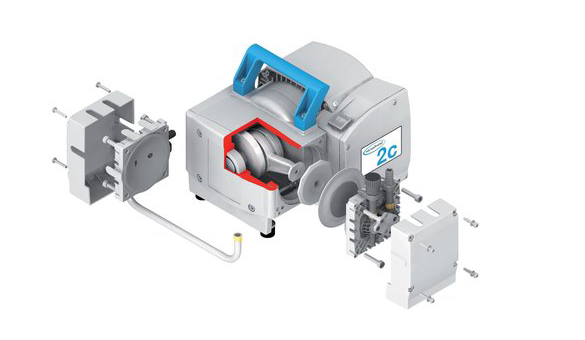Lauda-Königshofen, 23 May 2019
Germany has set ambitious goals for the energy revolution: The proportion of renewable energy relative to overall energy consumption should be 80 per cent by 2050. With the expansion of wind energy, photovoltaics and other regenerative energy sources as well as the increasing electrification of society, the world of business, politics and science are facing a major challenge: the efficient and sustainable storage of locally generated excess energy so that it can be fed into the energy grid during peak times. One highly promising energy efficiency concept is “Power to Gas”, whereby methane is obtained from wind or solar energy by way of electrolysis and methanation. Energy is then stored in gas form and recovered when required. Methanation could also accelerate the rise of gas-powered vehicles in the automotive sector, while the methane required to fuel the vehicles could be produced in an environmentally compatible way. Researchers all over the world are working at full speed to design a technology that is simpler and more relevant in terms of energy efficiency. The Max Planck Institute for Dynamics of Complex Technical Systems in Magdeburg is a leading organization that has already been active in this field of research for seven years. To carry out work in its pilot plant, the institute uses a LAUDA heat transfer system that must meet the very specific requirements of the researchers.
The two device types, Integral IN 2050 PW and IN 2560 PW, function according to the pressure blanketing principle. The devices, which are equipped with a stainless steel pressure vessel, significantly expand the temperature range of non-flammable heat carriers. For example, the upper temperature limit of water/glycol mixtures, which are commonly used in tests in the automotive industry, can be increased from 90°C to 140°C. Consequently, the new Integral P process thermostats enable testing of drive systems or stress tests under realistic conditions at low operating costs. In the pressure blanketing process, the compressed air supply is used to fill the device with negative pressure, which sucks the temperature control medium into the device with a vacuum of -0.2 bar. Integral P process thermostats can be used within a working temperature range from -40°C to 140°C with a cooling capacity of 20 kW and 25 kW, respectively. The devices are ideal for use in test stations for the testing of electric motors or batteries in the electric mobility sector.The two device types, Integral IN 2050 PW and IN 2560 PW, function according to the pressure blanketing principle. The devices, which are equipped with a stainless steel pressure vessel, significantly expand the temperature range of non-flammable heat carriers. For example, the upper temperature limit of water/glycol mixtures, which are commonly used in tests in the automotive industry, can be increased from 90°C to 140°C. Consequently, the new Integral P process thermostats enable testing of drive systems or stress tests under realistic conditions at low operating costs. In the pressure blanketing process, the compressed air supply is used to fill the device with negative pressure, which sucks the temperature control medium into the device with a vacuum of -0.2 bar. Integral P process thermostats can be used within a working temperature range from -40°C to 140°C with a cooling capacity of 20 kW and 25 kW, respectively. The devices are ideal for use in test stations for the testing of electric motors or batteries in the electric mobility sector.

In response to high demand for powerful temperature control in the pharmaceutical industry, LAUDA is expanding its product line of Integral T process thermostats with the IN 1830 TW, offering 19 kW cooling capacity. The process thermostat is aimed at users who need professional temperature control with a working temperature range from -30°C to 150°C. Thanks to their open hydraulic system, LAUDA Integral T process thermostats are ideal for temperature control processes with frequent changes in the consumer or test object. The new generation of devices features a modular interface concept and ensures maximum connectivity of user processes.
With the MID 80 through-flow control unit, LAUDA has taken an important step from pure temperature control to efficient energy management. A magnetic-inductive flow meter measures the flow rate of the temperature control medium within the application. The temperature difference between the inlet and the outlet is used to accurately determine the transferred amounts of energy. The high-precision measuring unit enables accurate and reproducible results, which are indispensable in battery tests, as used in the electric mobility industry. In order to achieve a high level of quality in production, validated test processes in this field use a defined flow rate.
